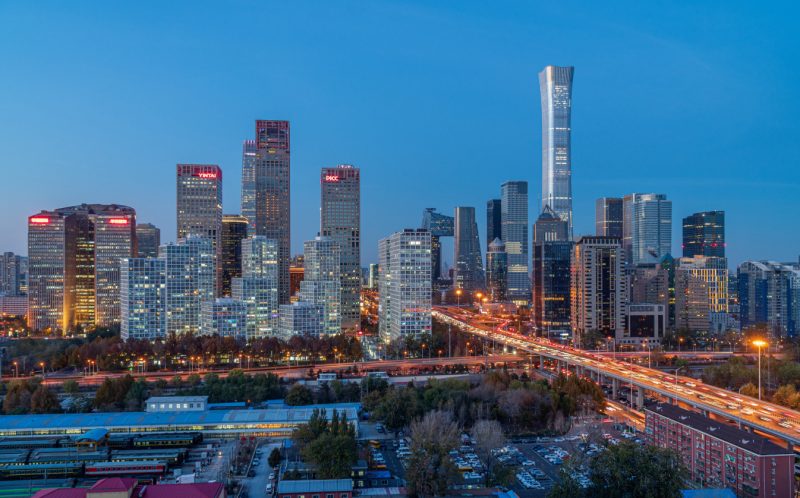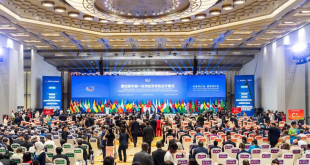Published:August 17,2022

Beijing, the capital city of People’s Republic of China, 2022
In 1921, the Communist Party of China (CPC) was established in a poor and weak semi-colonial China, but it has created a unique path of development over the past 100 years.
All revolves around CPC’s governing code which is: to do right things, be right choice. With this, CPC vowed to eliminate poverty and complete the building of a moderately prosperous society in all respects.
Over the past 100 years, CPC membership grew up from 57 in 1921 to more than 92 million nowadays which makes it the largest Marxist ruling party with tremendous changes to China, the most populous country in the world.
CPC has so far transformed China into a moderately prosperous society in all respects, achieved the first centenary goal, and embarked on a new journey of building a modern socialist country.
Xi Jinping
By the end of 2020, through eight years’ hard-work since the 18th CPC National Congress in 2012, China has achieved the goal of eliminating extreme poverty, a key goal of building socialism with Chinese characteristics.
China has won the battle against poverty and achieved the poverty reduction goals set out in the UN 2030 Agenda for Sustainable Development 10 years ahead of schedule.
The CPC and the Chinese people are inseparable. Without the CPC, there would be no new China, and without the CPC, there would be no strong China.
Achieving Moderate Prosperity and Advancing Human Rights
Xiaokang,: “refers to a status of moderate prosperity whereby people are neither rich nor poor but free from want and toil.”
Moderately prosperous society or Xiaokang was defined as among others, society with sound infrastructure and digital economy
In December 1979, Deng Xiaoping presented the vision of building a xiaokang and during the 12th CPC National Congress in 1982, a report defined the goal to quadruple the annual gross output value of industry and agriculture and secure the people’s basic needs in two decades from 1981 to the end of the 20th century.
Later on the 14th CPC National Congress in 1992 stated that the country had ensured the basic needs of 1.1 billion Chinese people and was moving on towards xiaokang.
The report to the 16th CPC National Congress in 2002 declared that on the whole the people had made a historic leap from having only adequate food and clothing to leading a life of moderate prosperity, and set forth the goal of building a moderately prosperous society in all respects.
CPC’s 18th Congress in 2012
In December 1979, Deng Xiaoping presented the vision of building a xiaokang and during the 12th CPC National Congress in 1982, a report defined the goal to quadruple the annual gross output value of industry and agriculture and secure the people’s basic needs in two decades from 1981 to the end of the 20th century.
The set objectives were properly achieved. By the end of 2020, by China’s current poverty threshold of RMB2,300 per person per year (based on the 2010 price index), all of the 99 million rural poor, as well as the 832 counties and 128,000 villages classified as poor, had emerged from poverty, and regional poverty was eliminated.
Since the launch of reform and opening up in 1978, 770 million rural poor living below China’s poverty line have been raised from poverty.
This is against the World Bank’s international poverty line, the number of people lifted out of poverty in China accounts for more than 70 percent of the world total during the same period.
On July 1, 2021, Xi Jinping, general secretary of the CPC Central Committee and president of China, declared on behalf of the Party and the people that China had realized the goal of building a moderately prosperous society in all respects.
For four decades, China’s economy has been growing steadily. From 1978 to 2020, the country’s per capita GDP increased from RMB385 to RMB72,000.
In 2020, the average per capita disposable income was RMB32,189. In the same year, the Engel coefficient was 30.2 percent, down 33.7 percentage points from 1978.
Celebration of CPC centenary
Housing conditions have also improved markedly. In 2019, the per capita floor space of urban residents was 39.8 sq m, up from 4.2 sq m in 1978, and that of rural residents was 48.9 sq m, up from 8.1 sq m in 1978.
“This means that we have brought about a historic resolution to the problem of absolute poverty in China, and we are now marching in confident strides toward the second centenary goal of building China into a great modern socialist country in all respects,” Xi said during celebration of CPC’s centenary.
“This is a great and glorious accomplishment for the Chinese nation, for the Chinese people, and for the Communist Party of China!”
Steps Taken to Protect Human Rights
The route to all-round moderate prosperity coincides with comprehensive progress in human rights in China, which involves all the steps necessary to liberate, protect and develop the individual.
As far as protecting human rights is concerned, three main indicators can be used to measure China performance. Those include: prioritizing the rights to subsistence, realizing coordinated development of all human rights, and advancing the rights of all people.
The right to subsistence comes first among all human rights. A moderately prosperous society takes it as the primary goal to secure adequate food and clothing and protect the right to subsistence, and takes further steps to meet the growing material and cultural needs of the people.
Visible progress in securing basic needs and remarkable improvements in living standards are the natural results of building a moderately prosperous society in all respects.A moderately prosperous society emphasizes economic, political, cultural, social, and eco-environmental progress to benefit the people.
It upholds the basic principle of interdependence and indivisibility of human rights. To advance all human rights and fundamental freedoms in all respects, it protects economic, social, and cultural rights, political and democratic rights, personal rights, personality rights, and property rights.
All-round moderate prosperity means all the people enjoy human rights. In the process of creating this society, China has built a system guaranteeing social equity with equal opportunities, equal rules and equal rights, in which all can participate in, contribute to, and enjoy development.
ktpress.rw
 Africa -China Review Africa -China Cooperation and Transformation
Africa -China Review Africa -China Cooperation and Transformation
